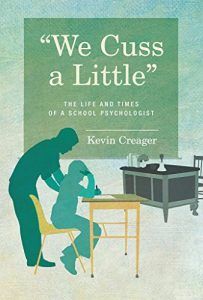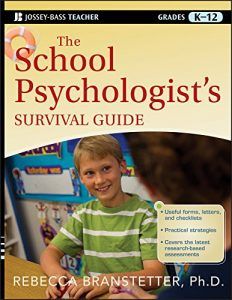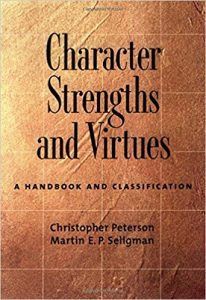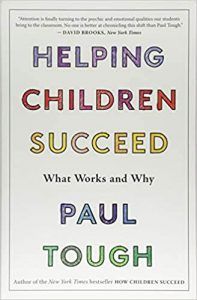School Psychology Resources: Best Tools, Assessments & Books
 School psychologists are often some of the most highly trained mental health professionals in schools.
School psychologists are often some of the most highly trained mental health professionals in schools.
Ensuring children’s mental health is critical to success in school and life.
Students who receive social-emotional, mental, and behavioral health interventions from psychological professionals are stronger academically and emotionally (National Association of School Psychologists, 2021).
This article seeks to provide school psychologists with resources, books, and assessment tools that can enhance their practice. The resources and books are specific to school psychology and also introduce school psychologists to different practices within psychology that are relevant when working with students.
Before you continue, we thought you might like to download our three Positive Psychology Exercises for free. These science-based exercises will explore fundamental aspects of positive psychology including strengths, values, and self-compassion, and will give you the tools to enhance the wellbeing of your clients, students, or employees.
This Article Contains:
School Psychologist Toolbox: Top 6 Resources
All school psychologists should have a variety of easily accessible resources on hand to provide the best treatment for students in need.
This library of resources and activities should always expand, but it is important to keep certain objectives in mind when evaluating potential resources. The criteria provided below ensure that the tools you select will serve a wide population of students and are well suited for a school setting.
When deciding whether a resource or activity is a good fit to include in your toolbox for school interventions, ask yourself the following questions:
1. Does the resource or activity support the primary mission of schools: promoting student learning?
First and foremost, schools prioritize learning. In order for any intervention to be effective, school psychologists must understand how the students they are helping engage in the learning process. Additionally, they need to examine what motivates the students to learn.
Often, the first step in promoting learning is to become more self-aware. One of the first things children learn to do is to internalize reactions to their performance on specific tasks and display emotional reactions accordingly (Demetriou, Kazi, Makris, & Spanoudis, 2020).
The Self-Awareness Worksheet for Younger Children and Self-Awareness Worksheet for Older Children are excellent resources for increasing self-evaluation skills in children and give them the opportunity to examine what makes them successful and where they might struggle at school.
2. Is the resource or activity versatile? Can it be applied to a variety of different contexts?
Even though dealing with emotional and behavioral issues requires very specialized and specific treatment, having activities that can be applied to different groups of students with similar issues is helpful.
The Common Elements Treatment Approach (CETA) focuses on the similarities between different mental health conditions (e.g., depression, trauma) and has been proven to reduce the burden of multiple symptoms or disorders (Johns Hopkins University, n.d.).
Because of its flexibility and ease of application, CETA is an excellent intervention to facilitate in the school setting, as it can address a variety of issues students are having. It also focuses on individual quantifiable targets and outcome monitoring to ensure students are receiving the appropriate intervention (Lyon et al., 2013).
This approach combines different modalities and therapeutic approaches. For instance, aspects of Strengths-Based Therapy that focus on highlighting individual strengths and aspects of Cognitive-Behavioral Therapy might be an effective means of addressing self-esteem and symptoms of anxiety.
Specific resources that can be applied in a variety of contexts include the Children’s Strength Cards, which can be used to help build children’s understanding of their strengths. Additionally, the My Body and My Worries worksheet helps students to identify worries and where they most manifest in their body.
3. Can the takeaways from the resource or activity be carried over to other settings such as home, daycare, and extracurricular activities?
Even though school psychology primarily focuses on improving mental health and wellness in teaching and learning contexts, it is still important to pay attention to how the skills students are learning may be impacted by other factors (e.g., family, activities outside of school).
Mental health problems affect not only students’ short-term classroom engagement but also the long-term development of positive relationships and work-related skills (National Association of School Psychologists, 2021). Therefore, it is important for school psychologists to consider the applicability of resources in a larger context.
Practicing coping skills in school can enable students to build these skills in a safe, controlled environment. The When I’m Scared and How to Apologize activities are great examples, as they give students the option to practice skills they might struggle with and deal with big emotions that cause them psychological distress.
2 Assessment Forms to Use in Your School

In addition to diagnosing and assessing students, school psychologists may also provide intervention and treatment.
Mental health conditions are often characterized by different symptomatology. The presence of some of these symptoms in childhood and adolescence increases the risk of psychiatric diagnoses in adulthood (Woodman, Mailick, & Greenburg, 2015).
Internalizing symptoms include anxiety, sadness, social withdrawal, and fearfulness, while externalizing symptoms include overactivity, poor impulse control, noncompliance, and aggression.
It is important to measure the prevalence of these symptoms in children who are having mental health difficulties. These self-report assessments measuring Youth Externalizing Symptoms and Youth Internalizing Symptoms are a good start to get a baseline of symptoms that might interfere with students’ learning ability and emotional functionality.
Hiring a School Psychologist? 14 Interview Questions to Ask
Interviews can be the most stressful part of any job. Whether you are the one hiring or the one being interviewed, there are different stressors that go with the hiring process.
Candidates want to explore whether the work environment fits their career goals and is a good fit for their personality.
When hiring a school psychologist, it is important to ensure that the individual is knowledgeable about the school environment and psychological interventions, and has the ability to form relationships with their students and interact seamlessly with other educational professionals.
As an interviewer, it is important to determine whether the candidate has the required knowledge, experience, and qualifications for a position as a school psychologist. Questions and hypothetical scenarios can also provide insight into their character.
To help you find the best fit for your school or psychology practice, we have provided potential questions to ask when hiring a school psychologist, some more focused on knowledge of school psychology and others on determining personal fit.
Knowledge of school psychology
- Give us a few examples detailing how school psychologists can support teachers.
- What are the most common problems that students face?
- What do you consider to be the most important skills of a school psychologist?
- How do you gain the trust of students?
- Describe a typical diagnostic process using an example from your experience.
- How would you deal with a student who is expressing a desire to hurt themselves?
- What would be the decision-making process when putting a student in a special needs class? Outline the assessment procedure and the factors that would go into your decision.
Determining personal fit
- How do you organize yourself on a daily basis?
- How do you handle conflict?
- What strategies do you use to deal with challenges in a professional environment?
- What strategies do you use to facilitate communication with an individual (colleague or parent) who is not responsive?
- What motivates you in a professional environment? Tell us how you motivate yourself to do your best work.
- What makes you a good fit for our organization?
- How does this position align with your career goals?
4 Best Books on the Topic
While there are many books for psychologists, these books are specific to school psychology and other practices that might specifically help students and children.
1. We Cuss a Little: The Life and Times of a School Psychologist – Kevin Creager
This book details the experience of a retired school psychologist who was in practice for over 30 years. The book focuses on the answers that families gave in demographic questionnaires, such as “What language do you speak in the home?” and “What is your ethnicity?”
Creager found that the answers to these questions provided a great deal of insight into his students and their families. Arguably, the way the demographic surveys were filled out provided more insight than the psychological assessments Creager performed.
This book is an excellent resource for new and experienced school psychologists. It reminds all psychologists that answers in more open-ended assessments, as well as the context behind these answers, can give a very clear understanding of the factors influencing the behavior of children and families.
Creager believes that more than test scores, report card grades, or special education labels, these parents’ answers and the stories behind them can give educators a much better understanding of what really goes on in the lives of the children they serve.
Find the book on Amazon.
2. The School Psychologists Survival Guide – Rebecca Branstetter
While the previous book is more anecdotal, this handbook aims to provide practical guidance for school psychologists.
Focus is centered around overcoming the difficulty of deploying evidence-based best practices with a limited amount of financial resources.
Branstetter offers advice on becoming accustomed at a new school; building relationships with other staff members; effectively communicating sensitive information to staff, students, and families; and initiating academic and social interventions for students in crisis.
In addition, the handbook provides information on responding to individual and school-wide crisis situations and potential ideas for ensuring self-care when practicing school psychology.
The book provides excellent, relatable advice for school psychologists at all stages of their careers, as it is very well organized. Readers can easily locate specific information or target skills they want to work on. It also provides case studies based on actual situations that school psychologists are likely to encounter in their work.
Find the book on Amazon.
3. Character Strengths and Virtues: A Handbook and Classification – Christopher Peterson and Martin Seligman
This book provides an outline of 24 character strengths and 6 virtues. Each strength and virtue is given its own chapter to explore its meaning, causes, consequences, and development, as well as specific strategies to cultivate each individual strength.
This book can be helpful for school psychologists because emotions that their students struggle with can easily be paired with a virtue or strength (e.g., patience can help with anger).
Knowledge of these positive traits and virtues can help school psychologists match the difficulties their students might experience with more positive behaviors.
Find the book on Amazon.
4. Helping Children Succeed: What Works and Why – Paul Tough
Although this book is not specific to school psychology, it summarizes why some children succeed and others falter. Tough argues that success has less to do with test scores and more to do with qualities such as perseverance, curiosity, and self-control.
This book is written with children who have more difficult circumstances (e.g., poverty) in mind, and it seeks to provide strategies that are science based and focused on improvement by challenging children and promoting those qualities in education.
It serves as an excellent reminder for school psychologists on what qualities need to be emphasized to help develop resilience in children of all ages.
Find the book on Amazon.
In addition to the selection above, our article on Positive Education Books provides an additional 15 books to consider.
Positive Education: 4 PositivePsychology.com Tools
There are several resources available on our website that are both specific to positive psychology and schools, and relevant for school psychologists to implement in their practice.
Our Masterclass on Realizing Resilience is an excellent course for school psychologists. It emphasizes teaching skills that help clients deal with difficult situations. Highlights from the masterclass include the six pillars of resilience, adaptive coping skills, and activities to help your clients change their perspective on challenging life events.
School psychologists can implement these strategies in their practice when dealing with children and adolescents who are in specific socio-economic situations beyond their control. This course can help practitioners pass down strategies to help students rise above their life circumstances and succeed, despite the difficulties thrown at them.
Having interventions available to help children deal with difficult emotions is important. It is also helpful to have activities that help children understand the emotions they are struggling with.
These activities on anger (Red Light: Anger!) and empathy (What Is Empathy?) are specifically designed to help children deal with difficult emotions and can be easily applied in a school context.
Additionally, if you’re looking for more science-based ways to help others enhance their wellbeing, check out our signature collection of 17 validated positive psychology tools for practitioners. Use them to help others flourish and thrive.
A Take-Home Message
Whether you are considering a career in school psychology or are already practicing, it is important to have access to resources and tools that can enhance your practice.
If you are a school psychologist looking to further develop your practice or are struggling with a difficult issue in one of your schools, it is important to narrow down the issue and engage in research to help target the intervention strategies you are looking for.
At PositivePsychology.com, we provide a Positive Psychology Toolkit© with over 400 resources. These resources include interventions and tools perfectly suited to aspiring and practicing school psychologists.
It is the largest online resource of positive psychology-related assessments, exercises, and activities, and it is updated monthly. In addition, by subscribing to the Toolkit, you will have access to a global community of healthcare professionals and peers.
If you want the ultimate school psychology toolbox, signing up for our Toolkit is the best decision you can make for yourself and your students.
We hope you enjoyed reading this article. Don’t forget to download our three Positive Psychology Exercises for free.
- Branstetter, R. (2012). The school psychologist’s survival guide. Jossey-Bass.
- Creager, K. (2015). We cuss a little: The life and times of a school psychologist. Author.
- Demetriou, A., Kazi, S., Makris, N., & Spanoudis. (2020). Cognitive ability, cognitive self-awareness and school performance: From childhood to adolescence. Intelligence, 79, 1–10.
- Johns Hopkins University. (n.d.). Global mental health: Common Elements Treatment Approach (CETA). Retrieved May 27, 2021, from https://www.jhsph.edu/research/centers-and-institutes/global-mental-health/talk-therapies/common-elements-treatment-approach/
- Lyon, A. R., Bruns, E. J., Weathers, E. S., Canavas, N., Ludwig, K., Vander Stoep, A., … McCauley, E. (2013). Taking evidence-based practices to school: Using expert opinion to develop a brief, evidence-informed school-based mental health intervention. Advances in School Mental Health Promotion, 7(1), 42–61.
- National Association of School Psychologists. (2021). Comprehensive school-based mental and behavioral health services and school psychologists. Retrieved May 27, 2021, from https://www.nasponline.org/resources-and-publications/resources-and-podcasts/mental-health/school-psychology-and-mental-health/comprehensive-school-based-mental-and-behavioral-health-services-and-school-psychologists
- Peterson, C., & Seligman, M. E. P. (2004). Character strengths and virtues: A handbook and classification. American Psychological Association.
- Tough, P. (2018). Helping children succeed: What works and why. Mariner Books.
- Woodman, A. C., Mailick, M. R., & Greenburg, J. S. (2015). Trajectories of internalizing and externalizing symptoms among adults with autism spectrum disorders. Developmental Psychopathology, 28(2), 565–581.
Read other articles by their category
- Body & Brain (49)
- Coaching & Application (57)
- Compassion (26)
- Counseling (51)
- Emotional Intelligence (24)
- Gratitude (18)
- Grief & Bereavement (21)
- Happiness & SWB (40)
- Meaning & Values (26)
- Meditation (20)
- Mindfulness (45)
- Motivation & Goals (45)
- Optimism & Mindset (34)
- Positive CBT (28)
- Positive Communication (20)
- Positive Education (47)
- Positive Emotions (32)
- Positive Leadership (18)
- Positive Parenting (4)
- Positive Psychology (33)
- Positive Workplace (37)
- Productivity (16)
- Relationships (46)
- Resilience & Coping (36)
- Self Awareness (21)
- Self Esteem (38)
- Strengths & Virtues (32)
- Stress & Burnout Prevention (34)
- Theory & Books (46)
- Therapy Exercises (37)
- Types of Therapy (64)








